Mitsubishi ASX vs SEAT Ateca - Differences and prices compared
Compare performance (158 HP vs 150 HP), boot space and price (20600 £ vs 25100 £ ) at a glance. Find out which car is the better choice for you – Mitsubishi ASX or SEAT Ateca?
Costs and Efficiency:
Price and efficiency are often the first things buyers look at. Here it becomes clear which model has the long-term edge – whether at the pump, the plug, or in purchase price.
Mitsubishi ASX has a distinct advantage in terms of price – it starts at 20600 £ , while the SEAT Ateca costs 25100 £ . That’s a price difference of around 4543 £.
Fuel consumption also shows a difference: Mitsubishi ASX manages with 4.40 L and is therefore slightly more efficient than the SEAT Ateca with 4.90 L. The difference is about 0.50 L per 100 km.
Engine and Performance:
Power, torque and acceleration say a lot about how a car feels on the road. This is where you see which model delivers more driving dynamics.
When it comes to engine power, the Mitsubishi ASX has a barely noticeable edge – offering 158 HP compared to 150 HP. That’s roughly 8 HP more horsepower.
In acceleration from 0 to 100 km/h, the Mitsubishi ASX is slight quicker – completing the sprint in 8.50 s, while the SEAT Ateca takes 9 s. That’s about 0.50 s faster.
In terms of top speed, the SEAT Ateca performs to a small extent better – reaching 202 km/h, while the Mitsubishi ASX tops out at 180 km/h. The difference is around 22 km/h.
There’s also a difference in torque: SEAT Ateca pulls distinct stronger with 360 Nm compared to 270 Nm. That’s about 90 Nm difference.
Space and Everyday Use:
Beyond pure performance, interior space and usability matter most in daily life. This is where you see which car is more practical and versatile.
Both vehicles offer seating for 5 people.
In curb weight, Mitsubishi ASX is minimal lighter – 1296 kg compared to 1345 kg. The difference is around 49 kg.
In terms of boot space, the SEAT Ateca offers hardly perceptible more room – 510 L compared to 484 L. That’s a difference of about 26 L.
In maximum load capacity, the SEAT Ateca performs slight better – up to 1604 L, which is about 8 L more than the Mitsubishi ASX.
When it comes to payload, SEAT Ateca somewhat takes the win – 525 kg compared to 449 kg. That’s a difference of about 76 kg.
Who comes out on top?
Overall, the Mitsubishi ASX shows itself to be barely ahead and secures the title of DriveDuel Champion.
It convinces with the more balanced overall package and proves to be the more versatile choice for everyday use.
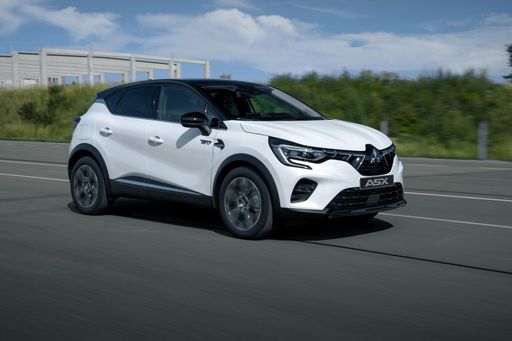
Mitsubishi ASX
Costs and Consumption
View detailed analysis
Engine and Performance
View detailed analysis
Dimensions and Body
View detailed analysis
Mitsubishi ASX
The Mitsubishi ASX is a compact crossover that mixes practicality with a no-nonsense personality, making it an easy choice for buyers who want sensible space without the showroom theatrics. It won't set your pulse racing, but its composed ride and user-friendly kit make it a dependable companion for daily errands and weekend escapes — reliable rather than flashy.
details
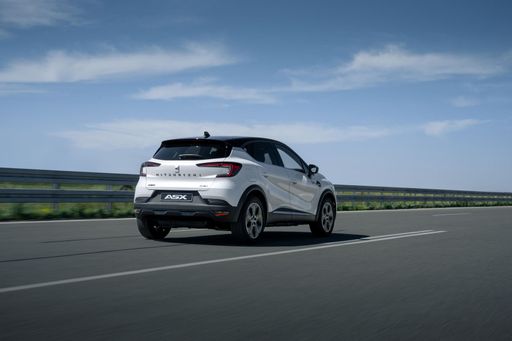

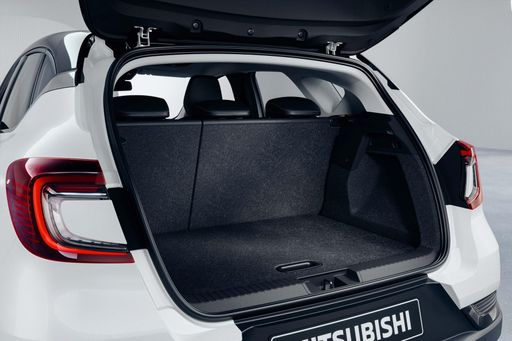
SEAT Ateca
The SEAT Ateca blends sharp, purposeful styling with practical space that turns everyday errands into something a bit more enjoyable. It’s poised and engaging to drive for its segment, offers solid value, and has just enough personality to make you smile on the school run.
details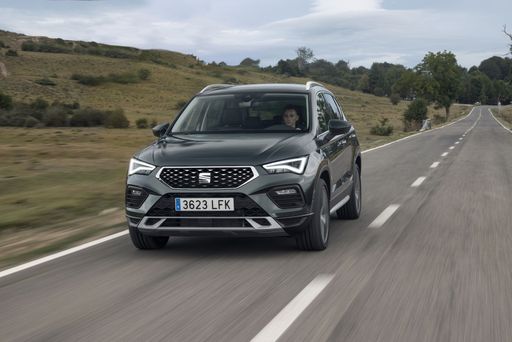
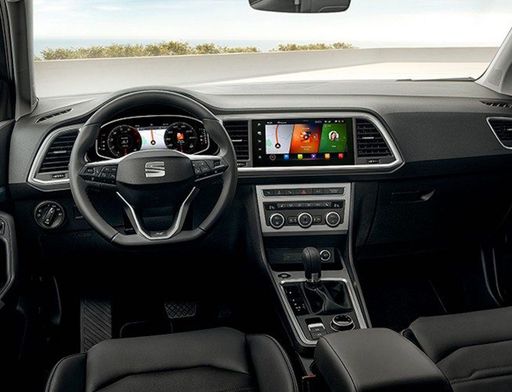
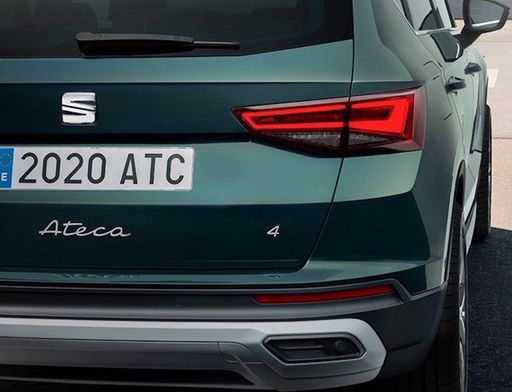
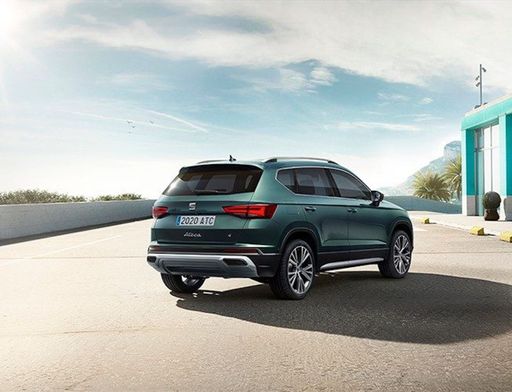
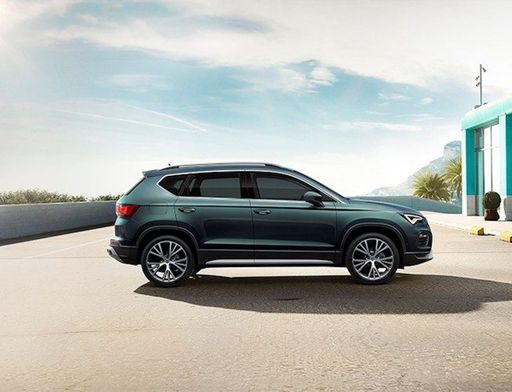
Costs and Consumption |
|
|---|---|
|
Price
20600 - 32500 £
|
Price
25100 - 36900 £
|
|
Consumption L/100km
4.4 - 6 L
|
Consumption L/100km
4.9 - 6.4 L
|
|
Consumption kWh/100km
-
|
Consumption kWh/100km
-
|
|
Electric Range
-
|
Electric Range
-
|
|
Battery Capacity
-
|
Battery Capacity
-
|
|
co2
99 - 135 g/km
|
co2
129 - 144 g/km
|
|
Fuel tank capacity
48 L
|
Fuel tank capacity
50 L
|
Dimensions and Body |
|
|---|---|
|
Body Type
SUV
|
Body Type
SUV
|
|
Seats
5
|
Seats
5
|
|
Doors
5
|
Doors
5
|
|
Curb weight
1296 - 1493 kg
|
Curb weight
1345 - 1514 kg
|
|
Trunk capacity
348 - 484 L
|
Trunk capacity
510 L
|
|
Length
4239 mm
|
Length
4381 mm
|
|
Width
1797 mm
|
Width
1841 mm
|
|
Height
1575 mm
|
Height
1601 mm
|
|
Max trunk capacity
1458 - 1596 L
|
Max trunk capacity
1604 L
|
|
Payload
397 - 449 kg
|
Payload
516 - 525 kg
|
Engine and Performance |
|
|---|---|
|
Engine Type
Petrol, Petrol MHEV, Full Hybrid
|
Engine Type
Petrol, Diesel
|
|
Transmission
Manuel, Automatic
|
Transmission
Manuel, Automatic
|
|
Transmission Detail
Manual Gearbox, Dual-Clutch Automatic, Automatic Gearbox
|
Transmission Detail
Manual Gearbox, Dual-Clutch Automatic
|
|
Drive Type
Front-Wheel Drive
|
Drive Type
Front-Wheel Drive
|
|
Power HP
91 - 158 HP
|
Power HP
116 - 150 HP
|
|
Acceleration 0-100km/h
8.5 - 14 s
|
Acceleration 0-100km/h
9 - 11 s
|
|
Max Speed
168 - 180 km/h
|
Max Speed
183 - 202 km/h
|
|
Torque
160 - 270 Nm
|
Torque
200 - 360 Nm
|
|
Number of Cylinders
3 - 4
|
Number of Cylinders
3 - 4
|
|
Power kW
67 - 116 kW
|
Power kW
85 - 110 kW
|
|
Engine capacity
999 - 1789 cm3
|
Engine capacity
999 - 1968 cm3
|
General |
|
|---|---|
|
Model Year
2024 - 2025
|
Model Year
2024 - 2025
|
|
CO2 Efficiency Class
D, C
|
CO2 Efficiency Class
E, D
|
|
Brand
Mitsubishi
|
Brand
SEAT
|
What drive types are available for the Mitsubishi ASX?
Available configurations include Front-Wheel Drive.




